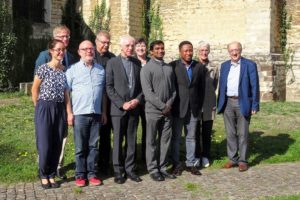Conrad Nwaka, originally from Nigeria, arrived in Leuven as a student in 2007. His intention was to go back home to build a quality life with his degree (Master in Communication Sciences). At the time, he did not know that he would fall in love with the culture of Belgium. In 2012 he became Belgian citizen, and since 2017 he is a member of the community team of Sint-Kwinten, where he is co-responsible for service projects and community building.
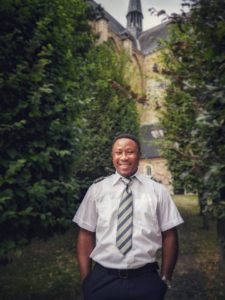
At the beginning of the COVID-19 pandemic, I thought that ‘essential professions’ meant only nurses, doctors, and police or security officers. Little did I know that my work as a bus driver also is considered essential. This gave me a kind of double feeling. I love my job and think it’s important to offer service and help to passengers; but, on the other hand, I had a certain fear of getting infected with COVID-19. I chose to keep working because that makes me happier. Besides the usual daily problems on the job, my working environment, with which I was so familiar, suddenly became very unfamiliar, owing to the many coronavirus restrictions.
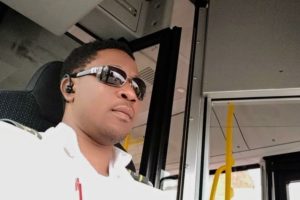
Conversations with colleagues had to take place at a distance of 1.5 meters, and handshakes were no longer allowed. Above all, I missed the joy of welcoming passengers onto my bus: because of the measures imposed, passengers were now only allowed to enter and leave the bus through the back doors, far away from the driver. During the lockdown, our buses became as quiet as a cemetery. We often drove whole days in buses that were completely empty, sometimes with a few passengers. I missed the chatting and the sound of the passengers.
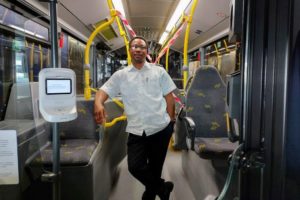
Social distancing is still a nightmare for me. I can’t just walk into the house of my eldest brother who lives next door to me anymore. My nephews Chima and Chibuzor couldn’t understand why their uncle stopped hugging them, throwing them in the air or playing with them on the street or indoors: this is the first thing I normally do as soon as I get out of my car when I get home from work. But during these corona times, I often step into my apartment with tears in my eyes because of the feeling of helplessness and sadness. The thought of infecting my nephews with COVID-19 even terrified me.
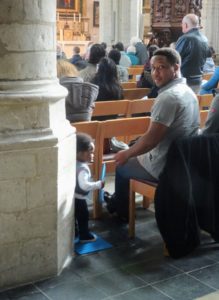
I also think of my family in Nigeria, especially my mother and younger brother, with whom the bond was always strong. The fear of losing a family member, especially my mother or younger brother, gave me many sleepless nights. This is due to the fact that there is little or no correct information or guidance provided there, if I may say so, regarding this pandemic. So it became a priority for me to call home every day to inform them about the pandemic.
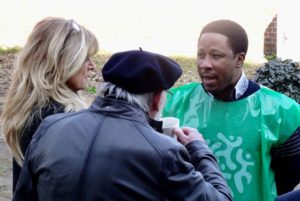
Moreover, as a Christian, born and raised in a cultured Catholic family, I feel obliged to attend church every Sunday and Holy Day of Obligation. I have felt this all my life, and I do it with a lot of love. I must confess that my faith as a Catholic has never been so tested as during this period. Until then, I could not imagine not celebrating the Sunday Eucharist or receiving the sacrament of reconciliation.
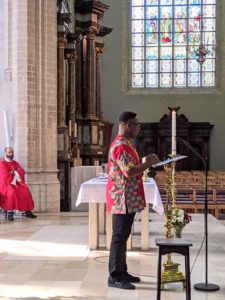
The international faith community of Sint-Kwinten has been an enormous support for me. A community I love so much that I made a pilgrimage to the Holy Land to ask for the protection and special blessing of God for our community and to pray for its success. One can understand how sad and painful it is to adapt to a life in lockdown: during those months of social isolation, I was very limited to live my life of faith to the fullest.
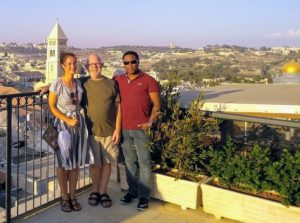
To be able to serve this fellowship with my friends Fr. Bosco, Henri, John and Annemie is a source of blessing and encouragement for me personally. Our bond grew stronger the more we were allowed to commit ourselves, with God’s grace, not only to accompany, support and encourage the members of our beloved community, but also to be a sign of hope for the whole community of the pastoral area of Leuven aan de Dijle in these confusing times.
